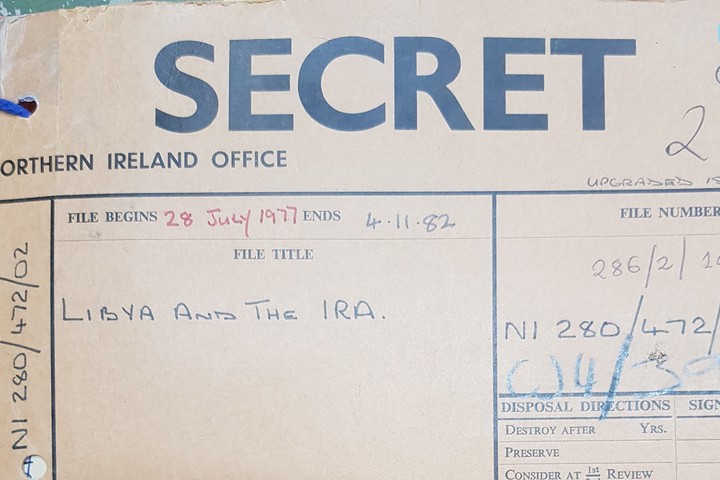The Internationalisation of Civil War: How External States Shape Rebel Dynamics
 The National Archives, London 2020
The National Archives, London 2020
Why do states provide different forms of support to rebels fighting in foreign civil wars? How can external support band disparate rebels together in some conflicts but lead to bloody fratricide in others? My book project aims to answer these questions. To do so, I make a two-step argument. First, I argue that civil wars are opportunities for states to improve their place in the global balance of power, and they provide different forms of support depending on the risk of retaliation from other states. Second, I argue that different forms of support have heterogeneous effects on rebel dynamics. The influx of money and weapons induces a competitive conflict environment and leads to greater splintering and rebel infighting as groups compete over important resources. Support such as troops shifts the balance of power, alleviates the systemic effects of anarchy, causes bandwagoning among and within rebel groups, and leads to more allying and less splintering. This argument provides a holistic account of how the international system shapes cooperation and competition in rebellions.

I test the empirical grounding of the argument as part of a mixed-method nested research design. First, I conduct two large-N analyses: a temporal network analysis to explain how external states support rebels and a matching analysis of rebel group behaviour on how different forms of support affect the propensity that rebels fight, form alliances, and splinter. Second, I conduct a theory-testing case study of the conflict in Northern Ireland (1968-1998) and a cross-case comparative study of Libya (2011-2019) and Syria (2011-2019). Drawing on archival evidence, secondary and grey literature, and micro-level conflict data, I demonstrate the causal mechanisms underpinning the results of the large-N analyses. I find support for key parts of the argument.
